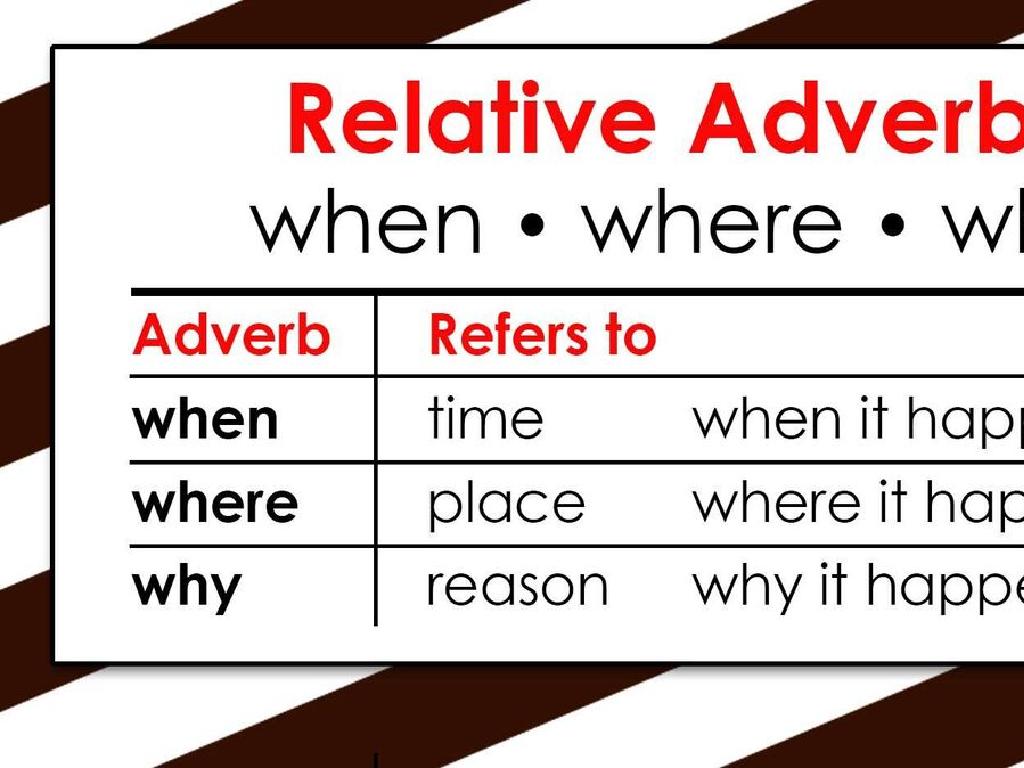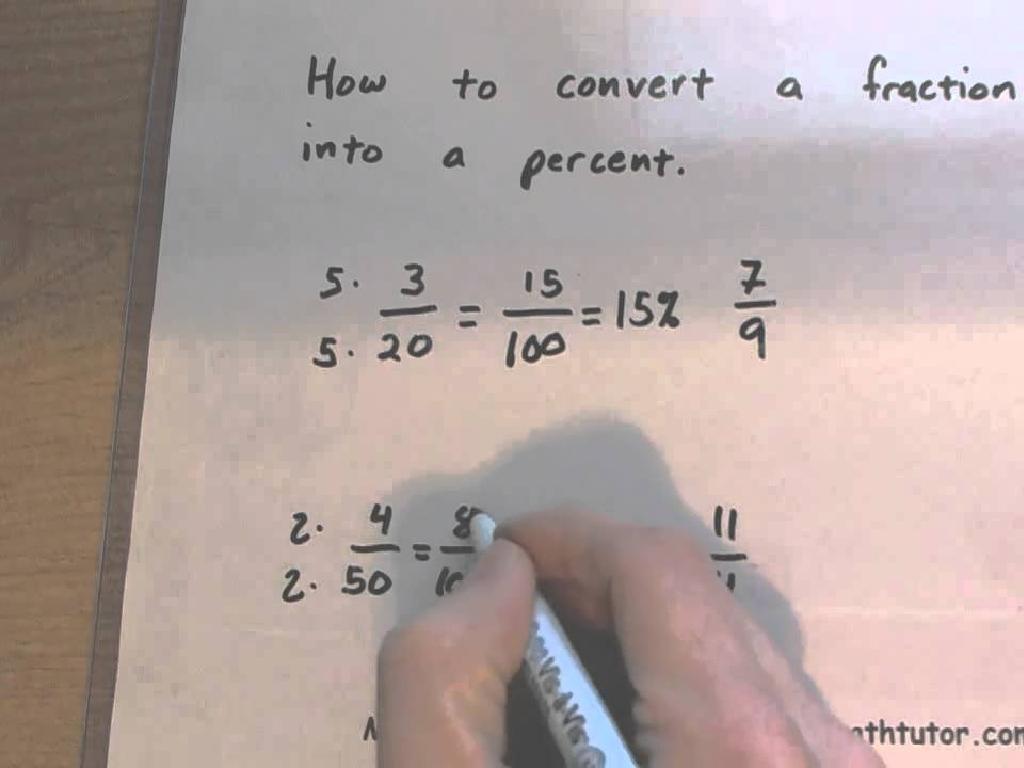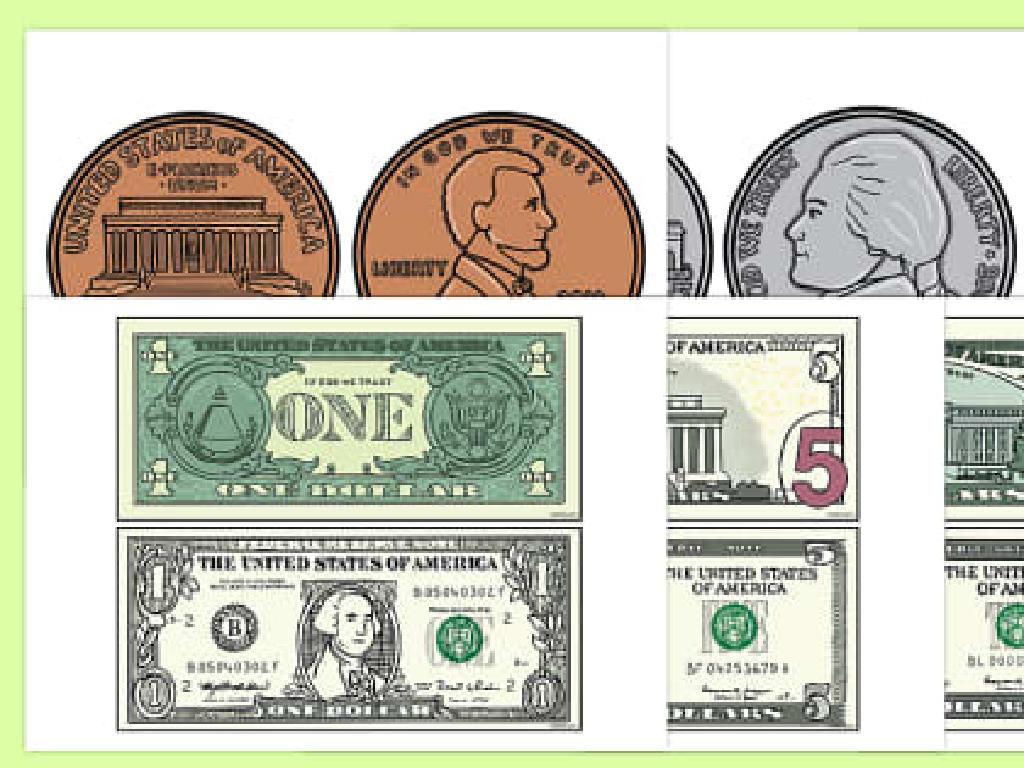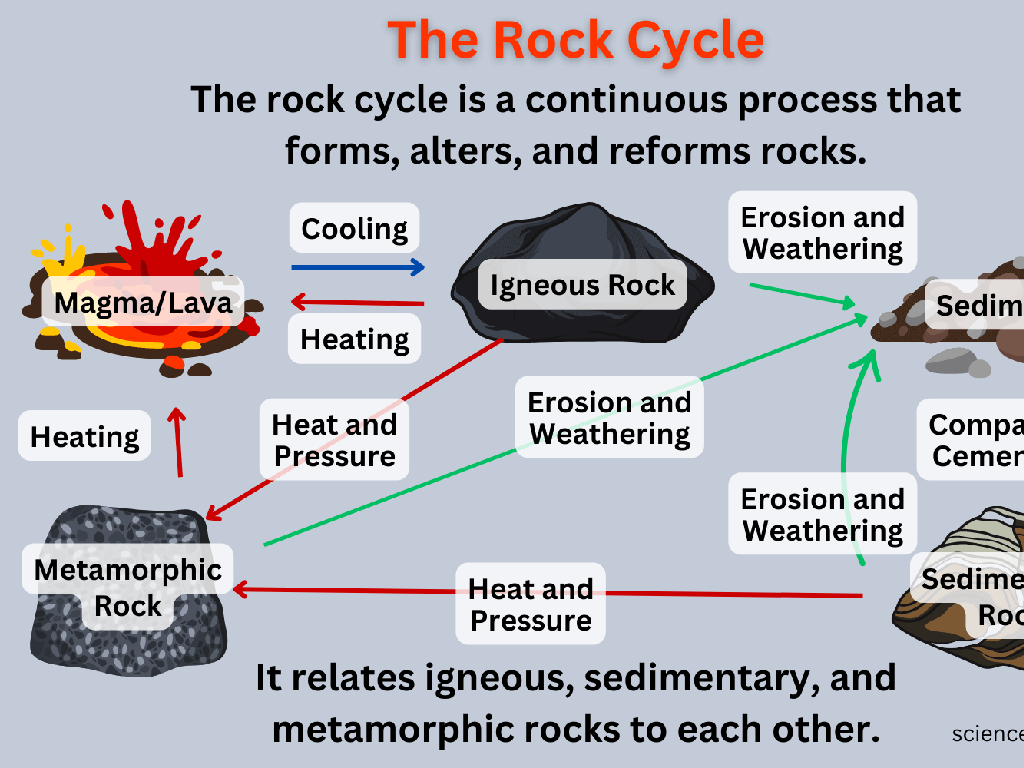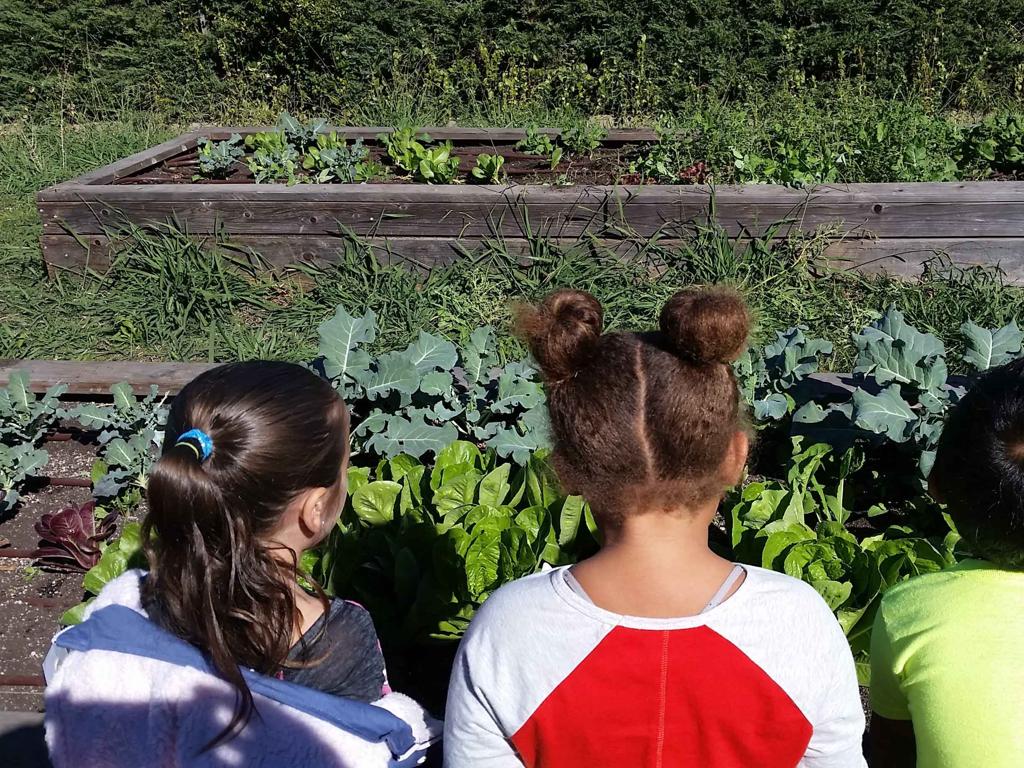Choose The Synonym
Subject: Language arts
Grade: Fourth grade
Topic: Synonyms And Antonyms
Please LOG IN to download the presentation. Access is available to registered users only.
View More Content
Exploring Synonyms
– What are synonyms?
– Words that mean the same as others, like ‘big’ and ‘large’.
– Importance of synonyms
– They make our writing more interesting and help avoid repetition.
– Examples of synonyms
– ‘Happy’ and ‘joyful’, ‘fast’ and ‘quick’, ‘smart’ and ‘clever’.
|
This slide introduces the concept of synonyms, which are words with similar meanings. Understanding synonyms enhances vocabulary and improves writing skills by allowing students to express the same idea in different ways, thus avoiding repetition and making their writing more engaging. Provide examples that are relevant to the students’ experiences and encourage them to think of synonyms for words they use daily. This will help them grasp the concept more effectively and see the practical use of synonyms in their language.
Understanding Synonyms
– Synonyms have similar meanings
– Words like ‘big’ and ‘large’ mean the same.
– Enhance writing with synonyms
– Use ‘joyful’ instead of ‘happy’ for variety.
– Synonyms prevent repetition
– Instead of ‘said’, try ‘exclaimed’ or ‘remarked’.
|
This slide introduces the concept of synonyms to fourth-grade students, emphasizing their usefulness in writing. Synonyms are words that have the same or nearly the same meaning as another word. They are a key tool for making writing more vivid and interesting, and they help to avoid using the same word repeatedly. Encourage students to think of synonyms for common words they use and to practice incorporating them into their writing. Provide examples and have students come up with their own lists of synonyms for commonly used words.
Choosing the Right Synonym
– Understanding synonyms
– Synonyms are words with similar meanings, like ‘happy’ and ‘joyful’.
– Context influences meaning
– The sentence around the word tells us which synonym fits best.
– Synonyms aren’t always interchangeable
– Some synonyms have slightly different feelings or uses.
– Practice makes perfect
|
This slide is aimed at teaching students how to select appropriate synonyms based on context. Begin by explaining that synonyms are words that have similar meanings but may not always fit in the same sentence. Emphasize the importance of considering the sentence as a whole to determine which synonym is the most suitable. Highlight that synonyms can have different connotations or levels of formality, which affects their interchangeability. Encourage students to practice by providing sentences and having them choose the most fitting synonym from a list, explaining their choice. This will help them develop a deeper understanding of word usage and vocabulary.
Exploring Synonyms: Words with Similar Meanings
– ‘Happy’ and ‘Joyful’
– Both mean feeling pleased or content
– ‘Fast’ and ‘Quick’
– Both describe something moving with high speed
– ‘Beautiful’ and ‘Attractive’
– Both refer to something that is pleasing to look at
|
This slide introduces students to the concept of synonyms, which are words that have similar meanings. Use examples that are easy to understand and relate to. ‘Happy’ and ‘Joyful’ both express a state of happiness or contentment. ‘Fast’ and ‘Quick’ are often used interchangeably to describe something moving with high speed. ‘Beautiful’ and ‘Attractive’ both describe something that is very pleasing to the eyes. Encourage students to think of other synonyms and use them in sentences to grasp their meanings better. This understanding will enhance their vocabulary and improve their writing skills.
Practice Time: Choosing Synonyms
– Understanding synonyms
– Synonyms are words with similar meanings
– Class examples
– We’ll work through examples on the board together
– Group activity
– Find synonyms for words in groups
– Share your synonyms
– Discuss the synonyms we’ve found as a class
|
This slide is designed to engage the class in an interactive activity to practice identifying synonyms. Begin by explaining that synonyms are words that have similar meanings, like ‘big’ and ‘large’. Use the board to demonstrate a few examples, ensuring that students grasp the concept. Then, break the class into small groups and give them a list of words to find synonyms for. After the group activity, bring the class back together and have volunteers share the synonyms they found. This will help reinforce their understanding and allow for a discussion on how some synonyms can have slightly different connotations.
Group Activity: Synonym Match-Up
– Form small groups for the activity
– Each group gets a set of word cards
– Find and match words with synonyms
– A synonym is a word that has the same meaning as another word
– Discuss matches within your group
– Share why you think the words are synonyms
|
This class activity is designed to encourage teamwork and enhance the students’ understanding of synonyms. Divide the class into small groups and distribute a set of word cards to each. The task for each group is to match words with their corresponding synonyms. This will help students recognize words with similar meanings and expand their vocabulary. After matching, each group should discuss their matches, explaining their reasoning and understanding of the words. As a teacher, facilitate the activity by providing guidance and ensuring each group participates actively. Possible variations of the activity could include timed challenges, using the matched synonyms in sentences, or creating a synonym word wall with the results.
Review and Reflect: The Power of Synonyms
– Understanding the usefulness of synonyms
– Synonyms enhance writing and avoid repetition.
– Sharing our synonym discoveries
– Let’s recap what synonyms we’ve learned today.
– Synonyms for ‘fun’: brainstorm together
– Exciting, enjoyable, entertaining, amusing. Any others?
|
This slide aims to consolidate the students’ understanding of synonyms and their importance in language. Synonyms can make our writing more interesting and help us communicate more precisely. Encourage students to share the synonyms they’ve learned, fostering a collaborative learning environment. Prompt them to think of synonyms for ‘fun’ and discuss how each synonym might be used in a different context. This reflection will help them appreciate the nuances of language and the power of word choice. For the activity, students can work in pairs or small groups to come up with additional synonyms for ‘fun’ and use them in sentences.

